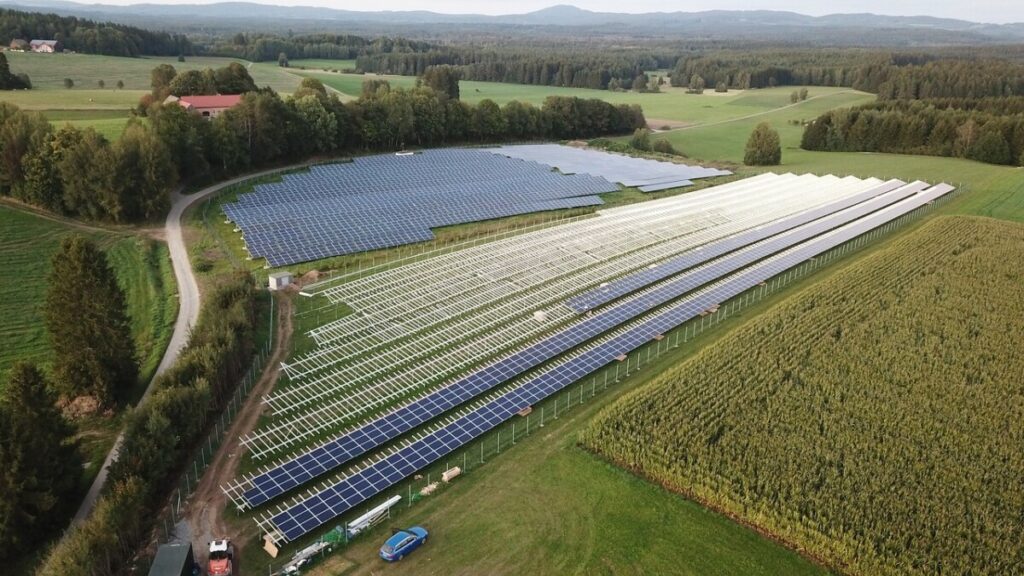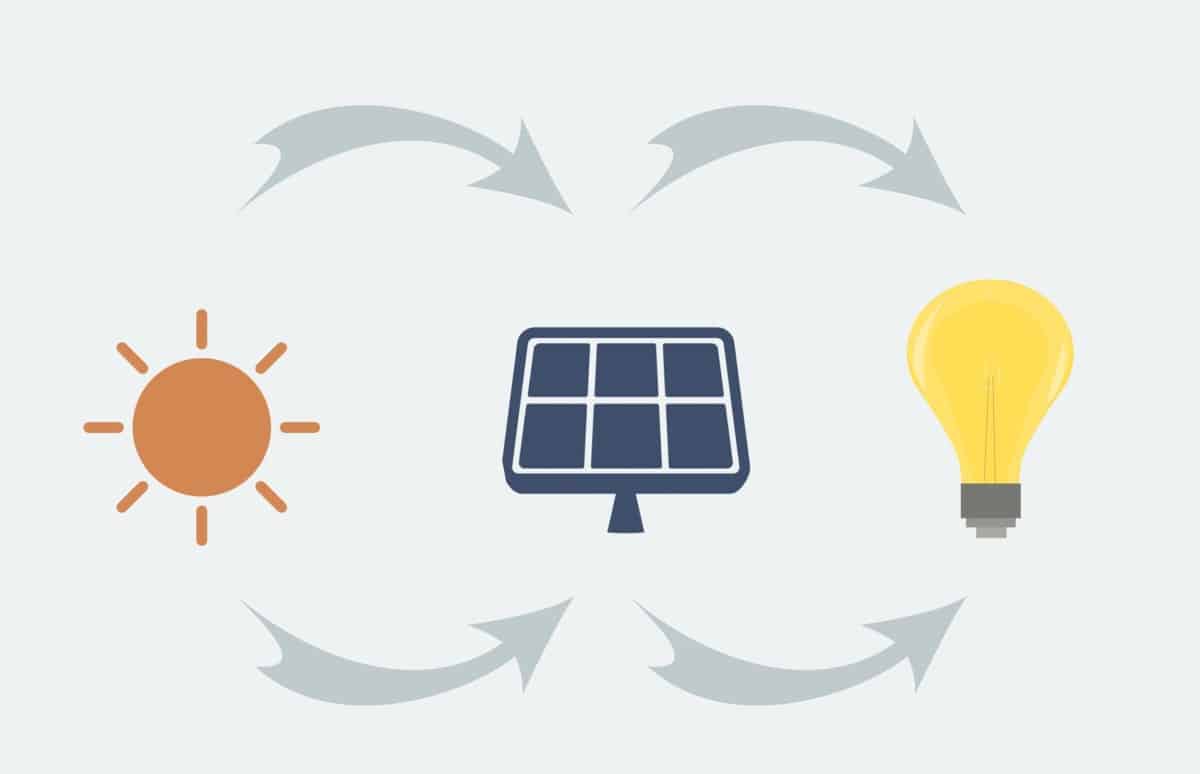The Importance of Solar Power
In recent years, the importance of solar power has escalated. Transforming it from a niche technology into a cornerstone of global renewable energy strategies.
As we grapple with the urgent challenges of climate change and the need to reduce greenhouse gas emissions, solar energy emerges as a beacon of hope and innovation.
This article delves into the myriad ways solar power is revolutionizing our approach to energy. Highlighting its environmental, economic, and societal impacts.
The Growing Importance of Solar Power in the Modern World
Understanding Solar Energy Systems: Solar power harnesses the sun’s energy through photovoltaic cells, converting sunlight into electricity.
This process is a clean, renewable source of energy, starkly contrasting with conventional energy sources like natural gas and coal, which contribute significantly to greenhouse gases.
Solar Power and Climate Change Mitigation: The deployment of solar systems is crucial in the fight against climate change.
By replacing carbon-intensive energy sources, solar energy significantly reduces carbon dioxide and other greenhouse gas emissions. This shift is vital for the health of our planet and the wellbeing of future generations.

The Economic Implications of Adopting Solar Energy
Reducing Electricity Bills and Energy Costs: One of the major benefits of solar energy is its potential to lower electricity bills. In the United States and across the globe, residential and commercial users are turning to solar panel systems to mitigate the rising costs of energy.
The Booming Solar Industry and Job Creation: Recent years have witnessed a surge in the solar industry. Creating numerous job opportunities. The growth of this sector is a testament to the increasing recognition of the importance of solar energy.
Government Incentives and the Solar Market: Initiatives like tax credits and net metering policies have made solar panel installation more accessible to American homes and businesses. These policies not only encourage the use of solar energy but also foster a robust market for renewable resources.
The Environmental Impact of Solar Power
A Key Player in Reducing Carbon Footprint: Solar energy systems play a pivotal role in diminishing our collective carbon footprint.
By utilizing solar radiation, these systems offer a sustainable alternative to fossil fuels. Reducing the amount of carbon dioxide and other greenhouse gases released into the atmosphere.
Preserving Natural Resources and Biodiversity: Solar power is a renewable energy source. Relying on the inexhaustible resource of the sun’s energy.
Its utilization means less dependence on depleting natural resources like coal and oil. Thereby preserving these for future use and reducing environmental degradation.
Importance of Solar Power Conclusion (To be continued)
The importance of solar power in today’s world cannot be overstated. It offers a pathway to a sustainable, low-carbon future, addressing the urgent challenges of climate change, energy security, and economic growth.
As we delve deeper into the multifaceted benefits of solar energy, it becomes clear that this technology is not just a choice but a necessity for a better world.

The Technological Evolution and Efficiency of Solar Power
Advancements in Solar Technology: The solar industry has seen significant advancements in solar technology in recent years. The development of more efficient photovoltaic cells and solar PV systems has improved the effectiveness and affordability of solar power.
These technological leaps have made solar energy more accessible to a wider range of users,. From residential systems to large-scale solar farms.
Impact of Efficiency on Power Generation: Higher efficiency in solar panels means more electrical energy can be generated from the same amount of solar radiation.
This increase in efficiency not only makes solar power more competitive with conventional energy sources but also maximizes the environmental benefits by providing cleaner power generation options.
Solar Power’s Role in Enhancing Energy Security
Diversification of Energy Sources: Solar power plays a critical role in diversifying the energy mix. By incorporating solar energy into the power grid, nations can reduce their reliance on imported fuels. Thus enhancing energy security and independence.
Stability in Energy Supply: Solar power provides a reliable and consistent source of energy. Although dependent on weather conditions, advancements in battery systems and solar technology have made it possible to store excess energy. Ensuring a stable supply even during periods of low solar radiation.
The Environmental and Health Benefits of Solar Power
Reduction in Air and Water Pollution: Solar energy production involves no air pollution. A stark contrast to power plants that emit harmful pollutants like nitrous oxide and particulates.
Additionally, unlike conventional power sources, solar energy systems require no water for electricity generation. Helping to alleviate water pollution and scarcity.
Improving Air Quality and Public Health: By reducing the use of fossil fuels and lowering greenhouse gasses, solar power significantly improves air quality. This leads to better public health outcomes, as cleaner air means lower rates of respiratory and cardiovascular diseases.

Solar Power’s Contribution to Global Warming Mitigation
Limiting Temperature Rise: The widespread adoption of solar power is essential in the global effort to limit temperature rise and combat global warming. By reducing greenhouse gas emissions, solar energy plays a crucial role in mitigating the effects of climate change.
Protecting Ecosystems and Wildlife: By curbing global warming, solar power helps protect fragile ecosystems and wildlife that are threatened by rising temperatures and changing climates.
The Cost-Effectiveness and Economic Viability of Solar Power
Decreasing Cost of Solar Panels: The cost of solar panels and solar installation has been steadily decreasing over the years. Making it an increasingly cost-effective option for electricity generation.
This trend is likely to continue as technology advances and economies of scale are achieved in the solar industry.
Long-Term Savings and Low Maintenance Costs: Solar panel systems are known for their low maintenance costs and long-term savings. Once installed, they require minimal upkeep and provide a steady source of electricity, significantly reducing energy bills over time.
Importance of Solar Power Conclusion (To be continued)
As we continue to explore the importance of solar power, its role in shaping a sustainable and prosperous future becomes increasingly evident. From technological innovations to environmental preservation, solar energy stands at the forefront of a global shift towards clean, renewable resources.

Solar Power’s Influence on the Global Economy and Job Market
Job Creation and Economic Growth: The solar industry has become a major job creator in the United States and around the world.
From manufacturing to installation and maintenance, the solar sector is providing new opportunities in the green economy. Contributing significantly to economic growth.
Stimulating Local Economies: The rise of solar energy systems encourages local investments and stimulates local economies. Solar panel installation and maintenance create jobs that cannot be outsourced, benefiting local communities directly.
Integration of Solar Power into Existing Energy Systems
Solar and the Power Grid: Integrating solar energy into the existing power grid is a crucial step in the transition to renewable energy.
Net metering allows residential and commercial users to feed excess electricity back into the grid. Providing an efficient way to manage energy resources.
Combining Solar with Other Renewable Sources: Solar power is often integrated with other renewable sources like wind energy to create a more resilient and diversified energy supply.
This combination helps balance the energy load and ensures a more consistent supply of electricity.
The Role of Government and Policy in Promoting Solar Energy

Government Initiatives and Subsidies: Government policies play a significant role in promoting the use of solar energy. Tax credits, subsidies, and grants have made solar technology more affordable and attractive to consumers and businesses.
Regulatory Support for Solar Energy Projects: Government regulations and support are essential for large-scale solar projects. Policies that encourage the development of solar farms and large installations are crucial for the widespread adoption of solar technology.
The Future of Solar Power and Its Potential Impact
Innovations in Solar Technology: Ongoing research and development in solar technology promise even greater efficiency and lower costs in the future. Innovations like solar photovoltaics and advanced solar arrays are set to revolutionize the way we harness solar energy.
Solar Power’s Potential to Transform Energy Landscapes: As technology advances, solar power has the potential to become a dominant force in the global energy landscape. Significantly reducing our reliance on fossil fuels and helping to mitigate the effects of climate change.
Importance of Solar Power Conclusion
The importance of solar power in the modern world cannot be overstated. It represents a key solution to many of the pressing challenges we face, from environmental degradation to energy security and economic sustainability.
Solar energy stands out as a beacon of hope, leading the way toward a cleaner, greener, and more sustainable future. As we harness the power of the sun, we unlock the potential for a brighter, more prosperous world for all.
With its myriad benefits, from reducing greenhouse gas emissions to creating jobs and stimulating economies, solar power is more than just an energy source; it’s a movement towards a better future.
As we continue to innovate and invest in solar technology, its role in shaping our world will only grow. Promising a legacy of a healthier planet and a thriving global community for generations to come.

Embracing Solar Power for a Sustainable Future
Global Commitment to Renewable Energy: The shift towards solar power reflects a global commitment to renewable energy. Countries around the world are setting ambitious targets to increase their share of renewable sources. With solar energy at the forefront of this transformation.
Solar Energy and Community Empowerment: Solar power is not just a tool for energy generation; it’s a means of empowering communities. By providing access to clean and affordable energy, solar power can drive social and economic development, particularly in remote and underserved areas.
The Impact of Solar Power on Reducing Dependency on Fossil Fuels
Transitioning Away from Non-renewable Resources: The widespread adoption of solar power is key to reducing global dependency on fossil fuels.
As we embrace solar energy, we move towards a more sustainable and environmentally friendly energy landscape. Mitigating the negative impacts of fossil fuel extraction and consumption.
Solar Power and Energy Independence: The use of solar energy contributes to national and individual energy independence. By generating their own electricity, homeowners and businesses can reduce their reliance on the grid and fossil fuels, fostering a sense of autonomy and resilience.
Solar Power’s Role in Addressing Environmental Concerns
Combating Climate Change: The utilization of solar power is a vital component in the fight against climate change. By providing a clean energy source, solar power helps reduce the emission of greenhouse gases and slows the rate of global warming.
Preserving Natural Habitats and Wildlife: The shift to solar energy helps preserve natural habitats and protect wildlife by reducing the need for destructive energy extraction methods and minimizing environmental pollution.
The Financial Benefits of Investing in Solar Power
Increasing Home Value: Installing solar panels can increase the value of a property. Homeowners who invest in solar energy systems often see a significant return on investment through increased home value and reduced electricity costs.
Long-Term Financial Gains: Despite the initial cost of solar panel installation, the long-term financial benefits are substantial. Over time, the savings on energy bills and the potential for earning credits through net metering can offset the initial investment.
Looking Ahead: The Promise of Solar Energy for Future Generations

Ensuring a Sustainable Legacy: By investing in solar power, we are not only addressing present-day challenges but also securing a sustainable future for upcoming generations. Solar energy offers a path to a cleaner, more sustainable world, where energy is both abundant and eco-friendly.
The Role of Education and Awareness in Promoting Solar Power: To fully realize the potential of solar power, education and awareness are key. Informing the public about the benefits of solar energy and how to access it is essential for its widespread adoption.
Importance of Solar Power Conclusion
The importance of solar power in our world today is profound and far-reaching. As a clean, renewable energy source, it offers a solution to many of the challenges we face in our pursuit of a sustainable and prosperous future.
From reducing greenhouse gas emissions and combating climate change to driving economic growth and empowering communities, solar power stands as a key player in the global energy transition.
As we continue to advance in solar technology and increase its accessibility, the potential for solar power to transform our energy systems and our world grows exponentially.
Embracing solar power is not just a matter of environmental responsibility; it’s a step towards a brighter, cleaner, and more equitable world for all. The promise of solar energy is not just in its ability to generate electricity but in its power to illuminate a path to a sustainable and hopeful future.
Recent Posts
Understanding Energy and Electricity: The Power For Progress
Energy and Electricity Energy and electricity are integral components of modern life, powering everything from homes and businesses to transportation and communication. Without them, the...
The Future of Wind Energy The future of wind energy is set to play a critical role in addressing global energy needs while combating climate change. As renewable energy sources like wind and...



